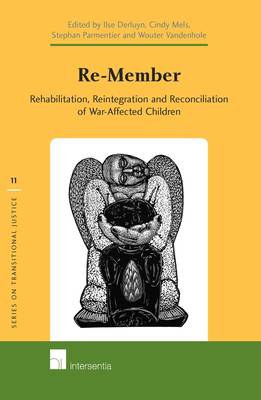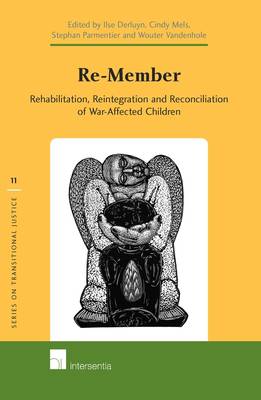
- Retrait gratuit dans votre magasin Club
- 7.000.000 titres dans notre catalogue
- Payer en toute sécurité
- Toujours un magasin près de chez vous
- Retrait gratuit dans votre magasin Club
- 7.000.0000 titres dans notre catalogue
- Payer en toute sécurité
- Toujours un magasin près de chez vous
Description
The recruitment and operations of child soldiers have been hitting the headlines in politics and the media for many years. However, a much broader circle of children is affected by armed conflicts. Hence, the many challenges to deal with youth affected by armed conflict exceed by far the issue of the recruitment and demobilisation of child soldiers, but also extend to questions of rehabilitation, reintegration and reconciliation processes of all children and youths.
In stark contrast to the complex reality of armed conflict and the involvement of children therein, academic work thus far has taken a rather narrow view on the matter. International children’s rights law has mostly focused on age limits for the recruitment of children and international criminal law has dealt with the prosecution and punishment of child recruiters. The disciplines of psychology and pedagogical sciences have merely emphasised the effects of and recovery from traumatic exposure by individuals, with some attempts for a more psychosocial perspective. Finally, studies in the field of transitional justice have paid remarkably little attention, until very recently, to the role of children in transitional justice mechanisms, both as victims and offenders.
This book brings together for the first time a wide range of leading scholars from three disciplinary perspectives (children’s rights, psychosocial studies and transitional justice). It aims at enhancing a multidisciplinary and comprehensive approach to the rehabilitation, reintegration and reconciliation processes of children and adolescents affected by armed conflict. The 22 chapters are specifically written for this volume and deal with theoretical perspectives, empirical findings and country reports. The book also contains prefaces from two distinguished academics and policy makers in the field of international children’s rights. It will therefore not only be of interest to academics, but also to policy makers, practitioners, non-governmental organisations, the media, and every citizen interested.
‘All chapters of the work are powerful and immensely knowledgeable and helpful. The book is a compressive work on the subject which should be recommended to academic researchers as well as layman.’
Farhad Malekian, distinguished Visiting Professor of International Criminal Law and Justice and Director of the Institute of International Criminal Law, Uppsala, Sweden, in Criminal Law Forum (2015) 26
Spécifications
Parties prenantes
- Auteur(s) :
- Editeur:
Contenu
- Nombre de pages :
- 568
- Langue:
- Anglais
- Collection :
Caractéristiques
- EAN:
- 9789400000278
- Date de parution :
- 21-02-12
- Format:
- Livre relié
- Dimensions :
- 165 mm x 246 mm
- Poids :
- 1138 g

Les avis
Nous publions uniquement les avis qui respectent les conditions requises. Consultez nos conditions pour les avis.






